Sunil Dutt
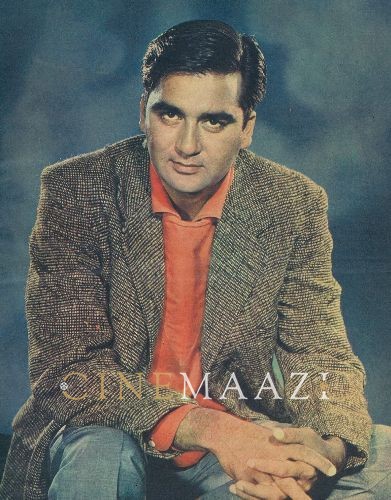
Subscribe to read full article
This section is for paid subscribers only. Our subscription is only $37/- for one full year.
You get unlimited access to all paid section and features on the website with this subscription.
Not ready for a full subscription?
You can access this article for $2 , and have it saved to your account for one year.
- Real Name: Balraj Dutt
- Born: 6 June 1929 (Khurd, Jhelum district)
- Died: 25 May 2005 (Mumbai)
- Primary Cinema: Hindi
- Parents: Dewan Raghunath Dutt, Kulwanti Devi Dutt
- Spouse: Nargis
- Children: Sanjay Dutt , Namrata Dutt, Priya Dutt
A man who excelled at the many roles of humanitarian, actor, director, producer and politician, Sunil Dutt was born Balraj Dutt on 6 June 1929 in Khurd, a village in the Jhelum district of pre-independence India. At the age of five, he lost his father, Dewan Raghunath Dutt, and was raised by his widowed mother. At the time of the Partition, he happened to be the only member of his family living in what later fell into the Indian state of Punjab. Displaced by this upheaval, Balraj found that his mother’s ornaments were buried in their village house while they were in a refugee camp at Jhelum. His uncle Mehta Hansraj Chibbar trekked to Nawanlok, three miles outside their own village, to meet Mirza Yakub Khan, a friend of Balraj’s father. Yakub Khan sheltered Hansraj and helped him reach the refugee camp. Meanwhile, Balraj, a college student in Lucknow, was looking for his family from one refugee camp to another. Fortunately, he was spotted by a relative at the Ambala station and reunited with them.
The sudden blow of the Partition meant that it fell to young Balraj to provide for his mother and younger brother. Uprooted from the land he called home, he had to find the means to create a new life from nothing. Living with his uncle and mother in Ambala, Balraj also served in the Army as a temporary Havildar clerk for around a year. In 1947, he was employed as a civilian clerk at the headquarters of R.I.A.S.C. Records M.T., Lucknow.
In the early 1950s, Balraj moved to Bombay and joined Jai Hind College. To make ends meet, he worked as a clerk at the B.E.S.T. office in Dadar till the late hours of the night. He lived in a small room at Kurla. As a college student in Bombay, Balraj developed a taste for acting, eventually landing a job with Keymers, a British advertising agency that hired him for radio programmes to be broadcast on Radio Ceylon.
In his new job as a radio announcer, it often fell to Balraj to interview film stars. In his own words, he found that “most stars are human and much more emotional than ordinary human beings.” His first interview was with Nimmi, followed by conversations with Dilip Kumar and Dev Anand among others. Soon, his show had gained such a following that Keymers asked him to cover film shootings as well.
When Balraj went to the sets of Shikast (1953) to interview the cast and director, Ramesh Saigal asked him to try his hand at film acting as well. In the blink of an eye, Balraj was made to put on Dilip Kumar’s costumes and appear for a screen test. Thus discovered by Ramesh Saigal, Balraj became ‘Sunil’, cast in Saigal’s next, Railway Platform (1955). Sunil was cast opposite Nalini Jaywant in the socialist, realist film, and delivered a performance hailed by critics and filmgoers alike. Though Sunil continued his work with Radio Ceylon for some time, he soon developed a considerable fan following as a film star.
Sunil Dutt next acted in films like Kundan (1955) opposite Nimmi, Kismet Ka Khel (1956) with Vyjayanthimala, B.R. Chopra’s Ek Hi Rasta (1956) opposite Meena Kumari and Rajdhani (1956) opposite Nimmi again. His most coveted role was in Mehboob Khan’s Gevacolour film, the epic Mother India (1957), as the errant son Birju to Nargis’ mother. His portrayal of the warm yet turbulent son was a precursor to the appearance of the Angry Young Man on screen in the seventies. Sunil Dutt’s heart-wrenching performance in Mother India placed him among the top stars of the time. While shooting the film, moreover, he rescued a trapped Nargis from a fire on the sets. The two fell in love during the course of the film’s making and were soon married.
Following Mother India, Sunil Dutt acted opposite Vyjayanthimala again in B.R. Chopra’s Sadhna (1958), earning laurels for his measured performance. He demonstrated his restrained skill in women-centric films like Bimal Roy’s Sujata (1959), starring Nutan. By the 1960s, he was one of the top actors in the industry. His association with B.R. Chopra continued with films like Gumrah (1963), Waqt (1965) and Hamraaz (1967), all of which were successful films. Initially, Sunil Dutt almost refused his role in Waqt: in his opinion, the role offered to Raaj Kumar in the multi-starrer was more appealing. He was persuaded to take up another role instead, drawn to playing an extrovert on screen, something he had not done previously. He continued to portray important characters in films like Main Chup Rahungi (1962) opposite Meena Kumari, Gaban (1966) and Mera Saaya (1966) with Sadhana, Khandan (1965) and Milan (1967) with Nutan and Chirag (1969) opposite Asha Parekh.
With the 1968 release Padosan, Sunil Dutt hit new heights. A romantic comedy starring Saira Banu, Kishore Kumar and Mehmood alongside Dutt, the film featured him in the character of Bhola, a simple man in love with his neighbor Bindu. The role turned out to be an immensely relatable one to the audiences of the time, and brought out Sunil Dutt’s potential for comedy. This film firmly established his natural style devoid of pretensions that appealed to urban middle-class audiences.
After the success he enjoyed as an actor, Sunil Dutt tried his hand at production and set up his own banner under the title of Ajanta Arts. The first film he made under this banner was Yeh Rastey Hain Pyar Ke (1963), a thinly disguised picturisation of the sensational K.M. Nanavati murder case in Mumbai. This was followed by Mujhe Jeena Do (1963), starring Waheeda Rehman, perhaps one of the best dacoit films of Hindi cinema. According to Dutt, Mujhe Jeena Do was a “cry of desire to live”, a human drama— a story of the transformative power of love. In 1964, Sunil Dutt made his directorial debut with the landmark film Yaadein, a full-length feature film starring only one actor, the director himself. The film won a Filmfare Award for Best Cinematographer in Black and White in 1966 as well as one for Best Sound Recordist. Using elements from both arthouse and commercial cinema, Yaadein still remains a film that intelligently treads the line between both, defying any attempts to confine it into a particular genre. Reshma Aur Shera (1971), another film made under Dutt’s own banner, reunited him with Waheeda Rehman and was a retelling of a Rajasthani legend about star-crossed lovers. The film featured stellar performances from Waheeda Rehman and Sunil Dutt, and she won the National Award for Best Actress. Unfortunately, the film bombed at the box office, leaving Dutt deep in debt. Throughout this phase of his career, however, he won numerous awards: two Filmfare Awards for Best Actor for Mujhe Jeena Do and Khandan, and a National Film Award for Best Feature Film for Yaadein. He was also felicitated with the Padma Shri Award in 1968 for his contribution to Indian cinema.
Sunil Dutt returned to making commercial cinema soon after with movies like Pran Jaye Per Vachan Na Jaye (1974) and Nehle Peh Dehlaa (1976). Tragedy struck when Dutt was on the cusp of launching his son Sanjay Dutt as an actor. Nargis passed away following a protracted battle with cancer in 1981, just before the release of Sanjay Dutt’s debut film, Rocky (1981). Sunil Dutt also withdrew in part from films after his loss, and engaged more in social work, setting up the Nargis Dutt Foundation to help cancer patients. In the 1980s, he appeared in a few films like Dard Ka Rishta (1982), Badle Ki Aag (1982), Raaj Tilak (1984) and Mangal Dada (1986).
At the request of his friend Rajiv Gandhi, Sunil Dutt joined the Indian National Congress and entered active politics. He remained a Member of Parliament for five terms and was also appointed as the Minister of Youth Affairs and Sport in 2004.
Although with time, Sunil Dutt acquired the polish of the glamorous film industry, he always retained his basic honesty. He appeared onscreen for the last time in the film Munna Bhai M.B.B.S. (2003), playing father to his son Sanjay. He passed away on 25 May 2005 after a cardiac arrest in Mumbai, a few days before he was to turn 76.
References
https://upperstall.com/profile/sunil-dutt/
https://www.theguardian.com/news/2005/jun/03/guardianobituaries.film
Mr. and Mrs. Dutt: Memories of our Parents, Namrata Dutt Kumar and Priya Dutt, 2007, Roli Books.
Darlingji: The True Love Story of Nargis and Sunil Dutt, Kishwar Desai. 2007, Harper Collins.
Yeh Unn Dinon Ki Baat Hai, Yasir Abbasi. 2018, Bloomsbury.
-
Filmography (89)
SortRole
-
Munnabhai MBBS 2003
-

Phool 1993
-
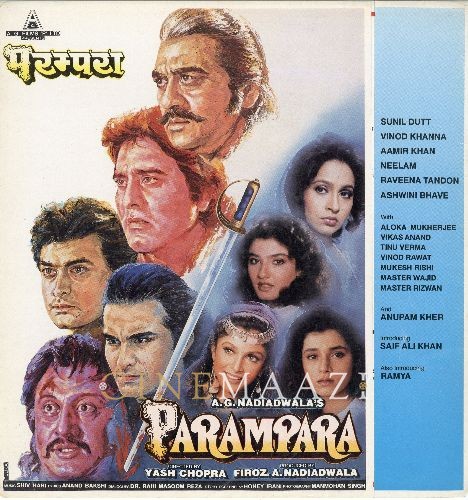
Parampara 1993
-
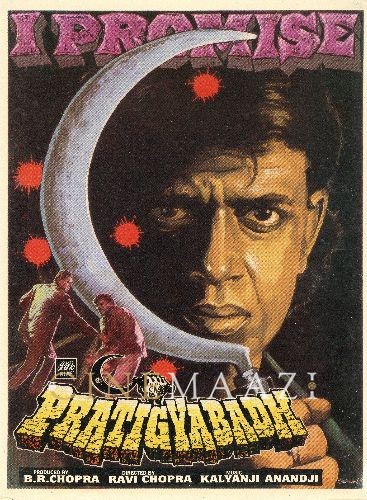
Pratigyabadh 1991
-
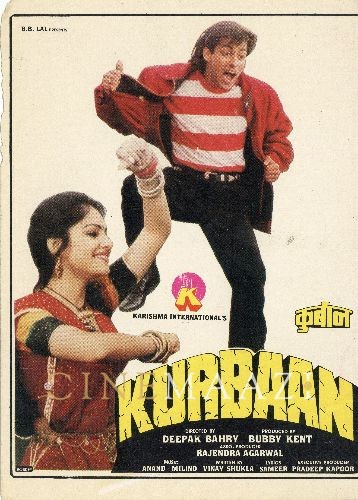
Kurbaan 1991
-

Dharamyudh 1988
-
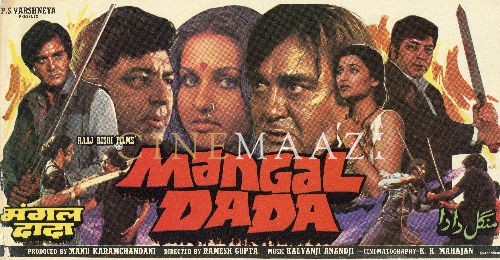
Mangal Dada 1986
-

Faasle 1985
-

Yaddon Ki Zanjeer 1984
-

Badle Ki Aag 1982
-
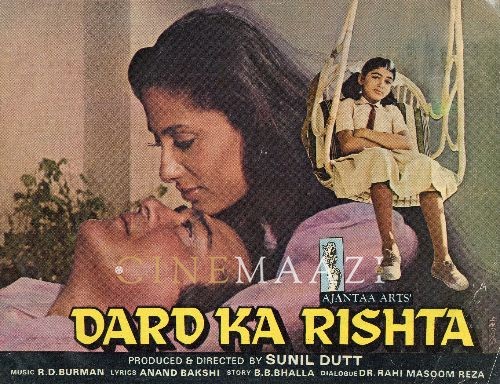
Dard Ka Rishta 1982
-









.jpg)



